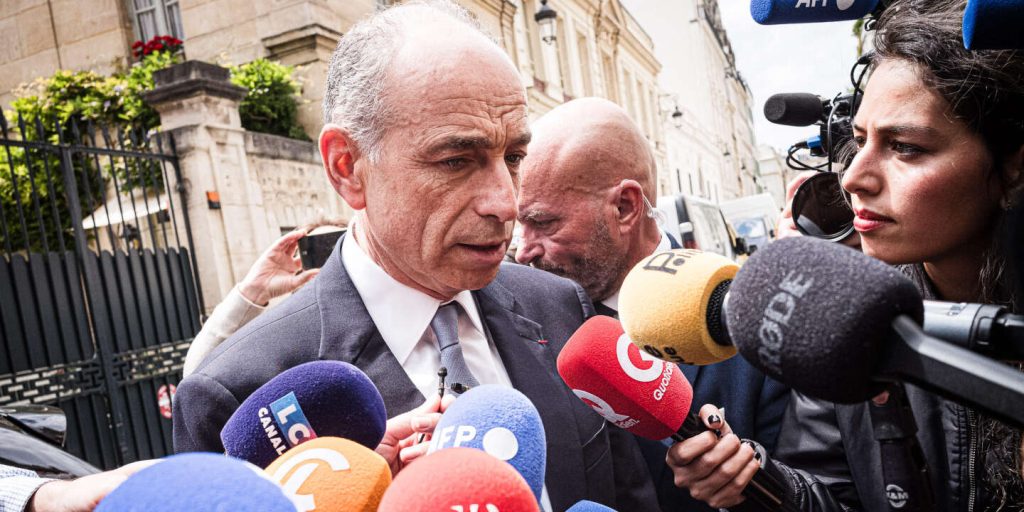The agreement between Les Républicains (LR) and the Rassemblement national (RN) is not yet official, but its effects are already being felt in various constituencies. Instructions have been issued to RN departmental delegates, sidelining certain local activists. In the 9th constituency of Hérault, LR-RN alliance is backing Charles-Henri Alloncle, a former president of “Jeunes avec Sarkozy”. Alloncle, a co-founder of a financial start-up and alumni of Sciences-Po and HEC, left politics in 2019 after a defeat in the Young Republicans election. The current RN candidate in the constituency is Frédéric Bort, former aide to Perpignan’s mayor Louis Aliot, who was dismissed in February and replaced as RN county delegate. Bort, previously an aide to Georges Frêche, is losing favor at RN headquarters.
Criticism of the LR-RN alliance is growing among RN candidates like Frédéric Bort and Damien Obrador. Bort expressed a desire for greater representation for “marinists” within the alliance, fearing the dominance of LR candidates. He believes that the alliance should consider the electoral and sociological realities of constituencies, highlighting the slim chances of LR candidates. Obrador, a regional councilor and candidate in Gironde’s 9th constituency, was disappointed by the CNI’s decision to choose another candidate over him, despite his strong performance in previous elections. The identity of the new candidate has not been disclosed, but the RN appointed a new district leader, Jean-Luc Roeder, six months ago. In elections on June 9, Jordan Bardella won in 87 of the 88 municipalities in the constituency.
The LR-RN alliance is causing tensions within the RN, as some members feel sidelined in favor of LR candidates. The decision to prioritize certain LR candidates over local RN activists has created discontent among those who have dedicated years to their constituencies. While the alliance may increase the chances of success in certain constituencies, it risks alienating long-standing RN supporters who feel their efforts have been undervalued. The clash between local RN candidates and the party leadership reflects the broader challenges of forming alliances between right-wing parties with distinct ideological histories and priorities.
The potential formation of an alliance between LR and RN raises questions about the future of both parties and the broader political landscape in France. The decision to collaborate on certain constituencies reflects strategic calculations by both parties to maximize their electoral prospects. However, the exclusion of long-standing RN activists in favor of LR candidates could fuel internal divisions within the RN and undermine the alliance’s cohesion. As political dynamics continue to evolve, the LR-RN alliance will face challenges in navigating the complexities of coalition politics and balancing the interests of both parties.
Overall, the LR-RN alliance is reshaping the political landscape in France, with implications for both parties and their supporters. The exclusion of local RN activists in favor of LR candidates is causing discontent among some RN members, highlighting the tensions within the alliance. As the alliance moves forward, it will need to address these internal divisions and ensure that all parties involved are adequately represented and their concerns addressed. The impact of the LR-RN alliance on the upcoming elections remains uncertain, but it is clear that it is already causing significant shifts in the political dynamics of the country.


